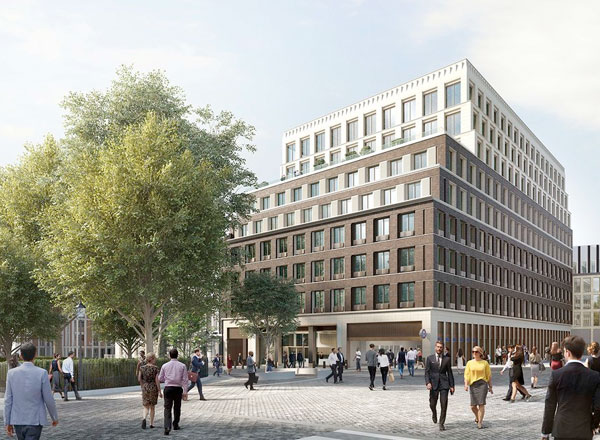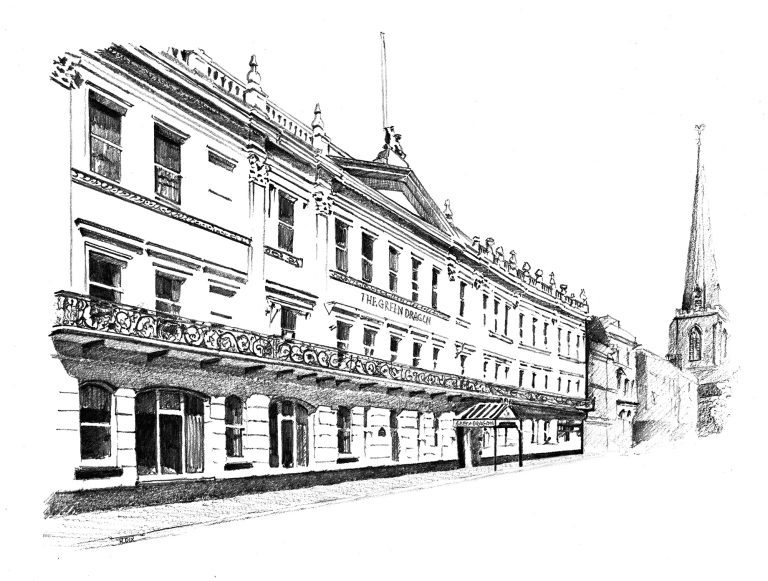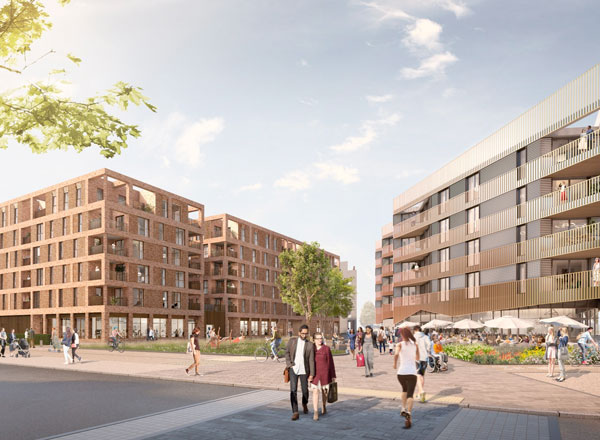Arts University Bournemouth (AUB) this week held a ceremony to break-ground on a new student halls of residence. The accommodation will be home to 300 students and is situated on AUB’s Wallisdown campus. Designed to fit in with the campus’ cutting-edge design aesthetic, the building will feature eight-bed clusters with communal kitchens and dining areas centred around a landscaped courtyard. The high quality accommodation includes roof-top solar panels, assisting in reducing the building’s energy demand, leading the way in sustainable living. The building has been designed by Design Engine Architects, who have created many of AUB’s existing and award-winning buildings. Design Engine pride themselves on creating architecture with sustainability at its core. The development boasts impressive sustainability credentials to benefit both students and local residents. The design includes upgrading the pedestrian and cycle routes that connect nearby areas. Specifically, this will involve linking Wallisdown Road and Gillett Road to Fern Barrow and significant public lighting design improvements. Emphasis has been placed on sustainable travel; ample covered and secure bicycle parking has been integrated into the design, aligning the project with AUB’s travel plan to promote safe and sustainable travel for students and staff. As part of the development, significant consideration has been given to the landscape design. Within the development, structured landscaped courtyards have been designed around buildings providing a vital link between external and internal spaces and promoting an environment of wellbeing. Over one hundred new trees will be planted, creating more green spaces for students and local residents. Morgan Sindall Construction were appointed as developers through the Southern Construction Framework (SCF), which ensures projects are delivered with social responsibility and transparent procurement procedures. Perfect Circle (AECOM) were appointed via the Scape Group’s National Built Environment Consultancy Services framework and are leading the multi-disciplinary team on this exciting project. The construction will provide approximately 20 new employment opportunities, use local sub-contractors where possible, and support apprenticeship training schemes so local young people are developing their skills by working on the build. The project team, during the early stages, engaged the local community through the planning and consultation process and have taken on board feedback received. This has seen a reduction in mass of some of the new accommodation blocks from four to three storeys and features architectural and landscape designs that will bring significant benefit to the overall street scene and public amenity. The student accommodation will be built to a high design spec, and provide a high living standard for those who are accommodated on campus. The project supports AUB strategic goal of becoming the leading professional arts university, and is due to be completed in August 2020. Nick Welch, Chief Operating Officer at Arts University Bournemouth, said: “The AUB campus is where our students experiment, innovate and push boundaries and work with industry-standard technology and spaces to equip them for life in the creative industries. With this project, we hope to provide a home for our students where they can thrive, whilst continuing to provide a creative hub, designed for specialists.” Head of Corporate Banking for HSBC in Hampshire and Dorset, Anthony Reed, said: “HSBC UK are delighted to be partnering with such a successful creative institution and supporting their ambitious plans for the future. “Our local Relationship team are excited to leverage our International footprint and sector experience to bring this strategy to life, which in turn will support the growth of the local economy and development of so many talented individuals.”













